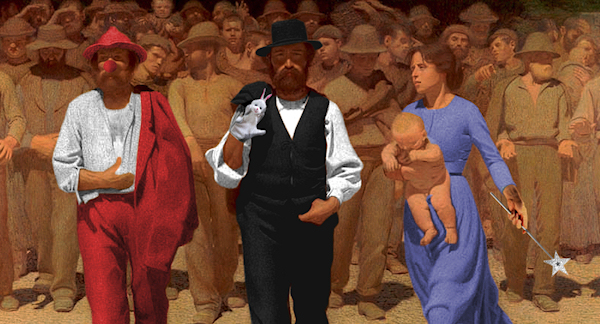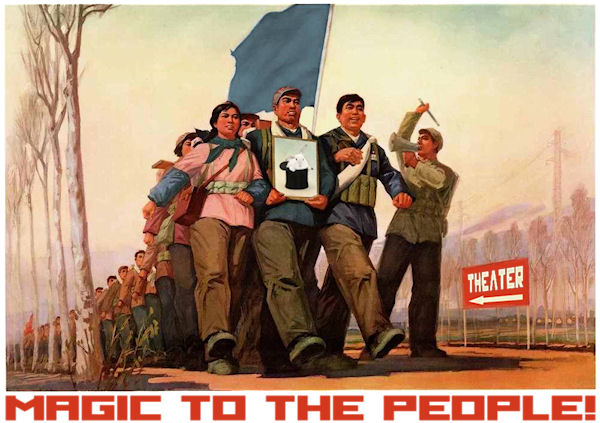When I was a child, every half hour I ran to the hen-house to check if the chicken had laid an egg. Incredible as it may sound, every time I found one. Brimming with enthusiasm, I brought it to my uncle. Half an hour later the scene was repeated – and so it went, for all day long.
Only a few years later, when my uncle passed away, I was able to explain such fertility. Thanks to a confession from his wife, I found out that he was the one secretly reloading the basket, to renew my sighs of amazement more frequency than Mother Nature would have allowed.
Although he didn’t look like David Copperfield – nor he attended Hogwarts (he even left school at third grade) – it’s hard for me not to consider him the greatest magician of my childhood. But were he still alive, and reading this, he would react with skeptical frown. And understandably so.
Till yesterday, the Magician have been a very special individual: a Superman endowed with irresistible powers, allowing him to rise above the common herd. Sawing and restoring women cut in halves, he shows how to dominate life and death. Breaking free from any constraint, he challenges the gods, just like Prometheus did. Subjugating people with his hypnotic fascination, he is a valuable resource in a marketing-driven capitalism.
No, this is not my uncle’s portrait. His magic was more intimate and humble. A discipline whose essence Samuel Sharpe caught writing:
The underlying purpose of magic […] is not to deceive people but to encourage them to approach life and cosmos in a state of wonder. (1)
What if it was now time to redefine the very concept of Magic? Breaking down the walls of theaters and allowing Magic to invade the world? How about giving Magic back to the common people, to encourage new stories and new wonders?

Homage to Giuseppe Pellizza da Volpedo’s (“The Fourth Estate”).
This is the spirit with which me and Ferdinando Buscema wrote Amaze: the first magic book open to anyone. You don’t need a stage (or a pedestal) to re-enchant the world. On the contrary, one must dirty his shoes with the mud of a chicken coop.
Doing it is not that difficult. Start realizing that the world does not work properly and be willing to fix it. If the most precious vocation of magic is to “hack reality”, to become everyday magicians is not only possible: it is necessary.
The existence of a mainstream kind of Magic, that makes its own navel his horizon, should not stop you. The dominant story that comes from the stages can be opposed with many other narratives from the bottom of the pyramid. Because, as Wu Ming have been relentlessly repeating,
The only alternative to put up with a story, is to tell thousands different stories.

1. Samuel Henry Sharpe, Art and Magic, The Miracle Factory, Los Angeles (California) 2003, p. 183.
BY-NC-SA 4.0 • Attribution-NonCommercial-ShareAlike 4.0 International